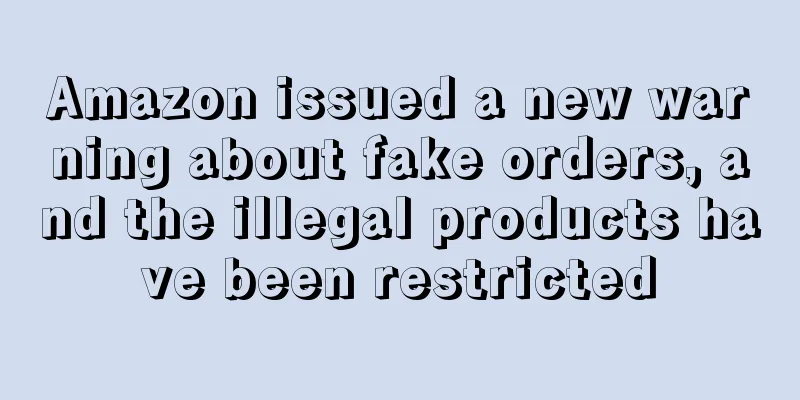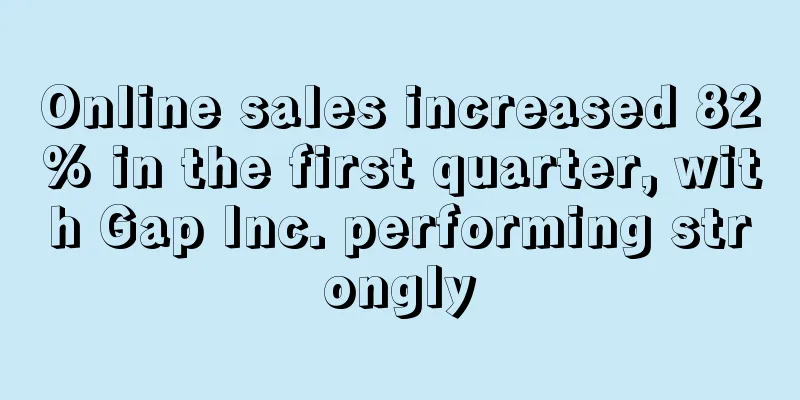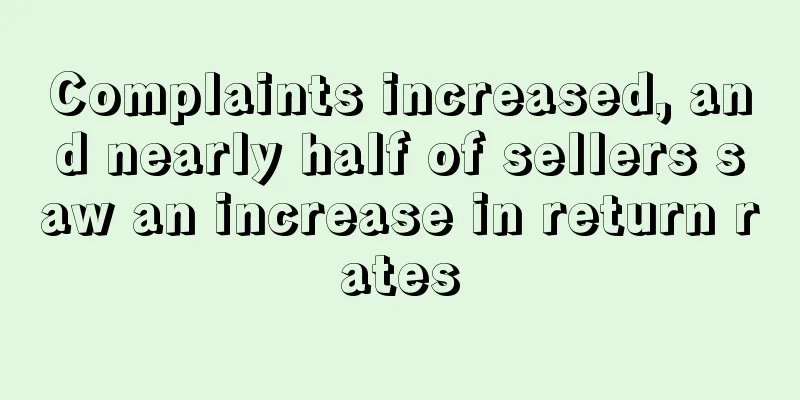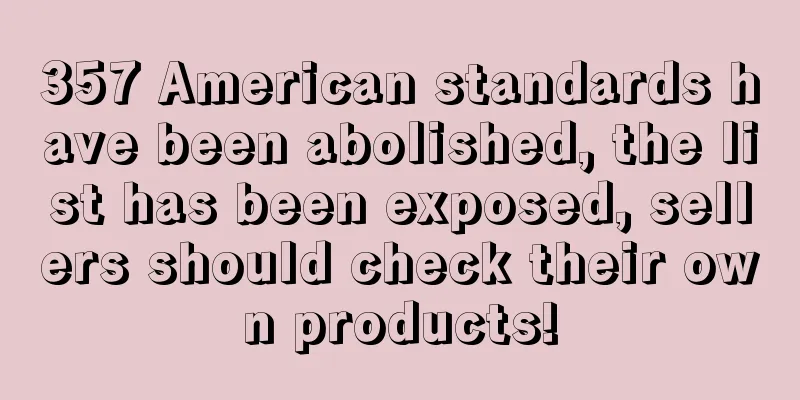Amazon issued a new warning about fake orders, and the illegal products have been restricted

|
The reorganization before the peak season is never absent.
In the past two days, many sellers received warning letters from Amazon, being judged to have manipulated reviews, and their fake products had their exposure reduced, with a traffic restriction of about 30 days or more. One seller received notifications on four accounts at the same time, but he said he "had never faked orders"; some sellers said that they had previously contacted real buyers one-on-one, but were now caught by the platform for paid reviews.
At the same time, feedback on violations due to off-site placement has also increased significantly. The reasons for violations include manipulating sales rankings, artificially increasing network traffic, etc. Relevant sellers need to file an appeal. If they fail to provide the information required by the platform, the warning will remain in their account. Sellers who have received such warnings said that "if they do not respond, their account will be blocked."
Will you be warned if you do business outside the site? Sellers are confused. This Wednesday, Amazon US released a clarification announcement on the incentive policy for off-site promotion, explaining the use of coupons and discounts, etc., which will be explained in detail below.
This year, Amazon has drastically removed a number of top sellers due to review manipulation issues. The structure of some categories has changed, and compliance has become a trend. A boss told the operation: "You must operate in compliance, no fake orders, no reviews." A week later, the boss asked again: "Why hasn't this product started to take off? Is it because of poor operation?"
Similar conversations happen every day. How to do well on Amazon without fake orders? This is still an unresolved question.
Amazon is cracking down on fake orders again, and illegal products are restricted
This week, Amazon once again took action to crack down on review manipulation, and many sellers received emails.
A seller said that his four accounts received warning letters on the same day for false orders and manipulation of rankings, but the seller felt aggrieved because none of these accounts had ever false orders.
The sellers don’t know why they were found to be in violation, but the probability of Amazon accidentally causing harm is not high. A seller on the Japanese website received an email notification from Amazon:
"We understand that you have been offering compensation for customer reviews.
Sellers may not manipulate ratings, feedback, or customer reviews … Amazon will investigate any attempts to manipulate reviews by sellers, vendors, or others that become known to Amazon. This includes offering compensation to customers in exchange for reviews.
If this problem persists, your account will be deactivated. "
The seller in question said he was exhausted and very confused: "The brushers contacted real Japanese buyers one-on-one. They are not professional reviewers and I don't know where the problem occurred." At times like this, one can only say that Amazon's genes as an internet company are showing.
Such sellers can choose to: A. confirm that there is a violation and promise to take appropriate measures to avoid recurrence; B. believe that Amazon's determination of violation of the policy is wrong and provide explanations or supporting evidence and documents. For sellers who have indeed engaged in fake orders, there is little room for defense.
In addition to warning accounts that place fake orders, Amazon also restricted the flow of products with fake reviews. Many sellers received the following email:
Amazon told the seller that we have detected unreliable buyer review activity on one or more of the products you offer. Because reviews will attract more buyers to view the affected products, we need to adjust the frequency with which buyers see these products. You can learn more about this through the Buyer Product Review Policy.
Because adjusting the buyer visibility of related products will affect sellers, while Amazon is working to correct the problem, it also made sellers aware of this situation through this email.
Next, while investigating customer reviews, Amazon will continue to adjust the frequency with which customers see previously listed products. Typically, it takes about 30 days for the platform to process these reviews and restore normal exposure for the ASIN. While Amazon is correcting the issue, these products will remain available for sale.
A seller who received the email was panicked: "I bought one order with this link two months ago . Is it true that the ASIN will not sell after receiving this email? I just sent a large batch of goods." Other sellers said they received the same email this week or last week and didn't know what to do.
Some sellers have received such emails. One of them said that after writing a POA, the listing traffic would drop a lot after normal sales; another also said that orders would still be placed, but the order volume would decrease and would return after a period of time. Some sellers also believe that this will be considered a one-time purchase and that they need to do a good job of fund callback and inventory handling.
Compared with the situation where a single product is restricted due to false orders, another situation that is even rarer is that off-site promotion is judged to be in violation.
Amazon issued an announcement after a batch of off-site placements were found to be illegal
Like the sellers whose accounts received notifications at the same time, a number of sellers who received warnings about fake orders said they did not do fake orders. One seller said that he had not violated the rules for nearly a year, but received a warning from Amazon yesterday, saying that he had abused product ratings, feedback, and reviews. The seller was puzzled, was this Amazon settling scores or a misjudgment? But the answer was neither.
Several other sellers received the same warning email, but they were also confused about the reason for the violation. Soon someone pointed out that this was a problem with off-site promotion: "This is basically caused by a sudden increase in orders from off-site sales." The sellers were incredulous: "It can't be that serious", "Is this true?"
The notification email is as follows:
The email content is:
“We are notifying you that we have detected a policy violation that negatively impacts your account health. If not resolved, this may result in account deactivation.
Why is this happening? We are contacting you because you appear to have violated one or more of the following Seller Code of Conduct requirements on Amazon.com: - Influence customer ratings, feedback and reviews Manipulating sales rankings Artificially increase network traffic
Prohibited conduct on Amazon.com includes, but is not limited to: Hiring a third party to try to boost ASIN rankings or optimize reviews. ——The package is not sent according to the address specified by the recipient. - Soliciting or accepting false or fraudulent orders. ——Order the products you sell. - Provide compensation (including discount codes) to customers who purchase your products.
How can the seller in question resolve the issue? You can view policy warnings on the Account Status page and follow the guidance in the Next Steps column next to the corresponding policy warning. If the seller does not follow the above instructions and Amazon does not receive the required information, the policy warning will be displayed for 180 days from the date it is posted in the seller's account.
If the seller believes that the email was sent in error, they can submit an explanation according to the guidelines in the "Next Steps" column. The explanation should include the following information: 1. Evidence or examples that prove that the account complies with Amazon's "Selling Policies and Seller Code of Conduct". 2. The seller's reason for believing that their account has not violated the platform policy.
Sellers are shocked. Now even those outside the site will be warned. What should they do after receiving the email? Sellers' opinions are also polarized:
A. Can be sold, no processing "——I received the same thing. I won't bother with it. ——I haven’t made any moves yet, and I am selling normally; ——I left mine alone. The store is in good condition now. I don’t know what will happen next. ——You can continue to sell it normally. My store received a similar email in June this year, but I ignored it.
B. You must reply. If you don't reply, your account will be blocked. “——I had an account like that two years ago, but I didn’t take care of it. It continued to sell for two or three months before it was blocked; ——You need to reply. If you don’t reply, your account will be blocked. This is how my account was blocked. ——They will call me, and then the account will be blocked. I have encountered this. ——It’s best to appeal, because you will definitely be rejected the second time. ——I didn’t violate any rules, but it was blocked because I didn’t handle it. I contacted Amazon customer service and the service provider, and they both said that it was blocked because we didn’t handle it.”
Some sellers said that they still need to deal with it. This is a warning, and there is no need to appeal. Just click it. "It doesn't matter if you receive it for the first time, but you must not make the same mistake again. This warning will disappear after half a year." said a seller.
Many sellers who have been doing off-site promotions recently said that they did not fake orders but received this email. Has Amazon changed its requirements for off-site promotions?
This Wednesday, Amazon US released a clarification announcement regarding its off-site promotion incentive policy.
The announcement stated that Amazon welcomes and encourages the use of coupons, discounts and other tools to lower prices and drive sales growth, but only if these incentives are also part of the product offer on Amazon.
If sellers offer discounts and other programs outside of Amazon with the intent to induce customers to purchase products that are listed and sold on Amazon without these incentives, the platform considers this a violation of the Amazon Seller Code of Conduct. These practices may affect customers and other sellers because they may improve search rankings, incentivize product reviews, and generate artificial traffic and conversion behavior.
Specifically, manipulating search rankings to artificially improve a product’s search ranking, including any form of false or misleading behavior such as “two-step URLs,” “super URLs,” “Funnels,” “Treasurehunt,” and “Search-Find-Buy,” is a violation of Amazon’s Seller Code of Conduct.
Amazon reminds sellers that they are responsible for their account behavior. Sellers who may not have been aware of this policy should immediately terminate these practices. In addition, Amazon will continue to review developers in the Seller Central Partner Network to ensure that they do not provide abusive services, and is also removing applications that violate these terms.
When it comes to catching violations, Amazon is ruthless, and the volatility on the platform this year is enough to illustrate this.
Amazon is serious about cracking down on fake orders
Previously, a Shenzhen 3C seller in the industry said that taking the 3C category as an example, if there is no evaluation, there may not be a single good review in a month, and the weight of reviews on the Amazon platform is too high, so many people’s initial operating method is to brush reviews.
Many Shenzhen sellers started out in the 3C category. Sellers in this category conduct evaluations, and sellers in other categories have also mastered the so-called "traffic code" and copied the evaluation model. One seller said frankly that when promoting a product on Amazon, more than 80% of the sellers he knows started out by conducting evaluations and gradually promoted the product.
Reviews have always been a violation of regulations that Amazon has expressly prohibited, but the platform's crackdown seems to be inconsistent.
The term "repaying after the fall" is a consensus among Amazon sellers on the platform's punishment of review violations. That is, sellers may have been violating review rules, but Amazon often does not directly block seller accounts or send warning emails. Instead, it conducts a unified liquidation after a period of time, and the liquidation time is mostly before the peak season. This makes some sellers who have faked reviews feel lucky, always thinking that the reviews are fine, but in fact, they are fine only at the time. When the time comes to settle accounts, sellers are likely to pay for their actions.
Since the beginning of this year, Amazon has been more frequent in settling accounts for review violations, with a wave of warnings or direct bans occurring in less than two months.
Starting from the end of April, Amazon has carried out a large-scale rectification of review violations. The industry's top sellers, such as Patonson and Zebao, were directly killed. The fall of the top sellers that were previously considered to have a golden ticket to immortality has made many sellers shudder. What's more terrifying is that the main brands whose accounts were blocked were almost wiped out. These brands that were once built with huge investments disappeared overnight.
Subsequently, Amazon’s account blocking targets shifted from the top sellers in the first tier to the middle sellers in the second tier. As usual, the sellers’ brands were implicated, with no room for maneuver. Then many small and medium-sized sellers also encountered account blocking crises. Under the tide of rectification, when some small and medium-sized sellers had their accounts blocked, they did not even cause much of a stir and disappeared without a trace.
After being blocked, both the top sellers and small and medium-sized sellers suffered heavy losses, with layoffs, lease terminations, and bankruptcy following one after another. According to China News Weekly, during this wave of account blocking, half of the cross-border e-commerce business of a major seller of small home appliances and electronic products was destroyed. The company's annual sales were about 6 billion, of which 3.6 billion were achieved through the Amazon platform.
The industry's top sellers have been frustrated by account closures, and most of them have seen a sharp decline in revenue and net profit. The well-known seller Youkeshu's operating income in the first half of this year was 1.092 billion yuan, a year-on-year decrease of 51.12%, and a net loss of 742 million yuan. Among them, the Amazon platform's half-year revenue was 336 million yuan, a year-on-year decrease of 57.15%. One of the main reasons for the loss is Amazon's increased control over stores. Due to suspected violations of the platform's operating rules, some of Youkeshu's sales sites were closed and store funds were frozen, affecting its business on the Amazon platform. Other big sellers were not spared, and the reasons for their losses are inseparable from this account closure.
Amazon's rectification seems to show no signs of stopping. In early November, which is the peak season, a wave of warnings about review violations came again. According to people familiar with the matter, the platform's crackdown will continue at least until the end of the year.
Amazon has suddenly stepped up its crackdown on review violations, driven by foreign media reports and pressure from the Federal Commission. The previous ban was triggered by a data leak of fake orders reported by foreign media. Amazon's past was exposed to the public, and it seemed difficult for the platform to justify itself if it did not make some progress.
Since then, the Federal Trade Commission has continued to pressure Amazon to take action against merchants who participate in fake reviews. The Federal Trade Commission said that Amazon's regulatory approach to sellers and "paid review programs" is important because false positive reviews can lead to a large number of low-quality goods on the platform and cause shoppers to distrust. But more importantly, if people buy low-quality or defective products because of fake positive reviews, it puts consumers at risk.
A large number of fake reviews have been exposed, causing the Federal Trade Commission to question Amazon's lack of regulatory capabilities. Former Amazon employees also said that Amazon has neglected to review seller qualifications and build anti-fraud systems for many years, and has focused on enriching platform product categories and actively attracting sellers to join. This unrestricted growth has led to fierce competition among sellers, and some illegal sellers have violated platform policies in order to survive.
As long as Amazon does not rectify the situation, the cat-and-mouse game is likely to continue. Some sellers will eventually slip through the net. Even if their account is blocked for “abusing reviews,” they will repeat the same thing on another account, and the cycle will continue.
Is it possible to do well on Amazon without fake orders?
Even after the most stringent rectification, there are still sellers who continue to play hide-and-seek on the platform’s red line. For sellers, is it really impossible to survive on Amazon without fake orders?
When sellers in the industry had their accounts blocked one after another for comment violations, many peers panicked and immediately notified their service providers to stop all comment violations. Some service providers even suspended accepting reviews and fake order businesses.
Under the wave of compliance, there are indeed fewer violations of review rules, and many sellers have become very cautious. Without reviews, the general feedback from the industry is that it is difficult to promote products, and new products are the first to be affected.
An operation complained about his boss: The boss clearly said that the operation must be compliant, no fake orders and no reviews, but the product could not be promoted. He went back to question why the product did not have orders, and whether it was the operation that was not good. The operation replied that the operation was compliant, and refined operation would not produce orders so quickly. But the boss did not listen, and pointed out that the operation idea was wrong, and there was no profit at all if the product did not have orders and volume. A product that did not have orders for a month was either a bad product or a bad operation.
Nowadays, many sellers have this problem. They really don’t know what to do with Amazon products, especially new products, except to fake orders. An operator said frankly that after not fake orders, promoting new products is like opening a blind box. A new product can take off if it gets a good review, but it is likely to die if it gets a bad review. There is a big difference between the good and bad reviews of two links of the same product , and one can only pray that the link will get a good review.
Driven by the weight of comments, some sellers are still on the road of violating regulations. However, after seeing big sellers being blocked overnight, many sellers have spontaneously stayed away from comment violations. A senior operator in the industry said, "I dare not stay in a company that fakes orders, for fear that all my hard work will go to waste."
Most sellers and operators in the industry have this view. One seller said that he had faked more than a dozen orders for a new product, but Amazon detected it and deleted all of them. Later, he stopped faked orders. Another seller believes that fake orders are no different from drinking poison to quench thirst. If you have this time, you might as well study the product and develop more differentiated and good products.
On the other hand, after the accounts of illegal sellers were blocked, those sellers who did not make comments and were serious about their products reaped great rewards. In June this year , a regular seller reported that the traffic orders of several products suddenly increased. Now that it has entered the peak season, the sales of these products are even more impressive, and the sales of one product have increased several times.
Anker, a benchmark in the industry, is a beneficiary of compliant operations and careful product research and development. In the first three quarters, it achieved operating income of 8.425 billion yuan, a year-on-year increase of 39.99%; net profit of 646 million yuan, a year-on-year increase of 21.17%. Among them, overseas revenue reached 8.143 billion yuan, a year-on-year increase of 36.91%, accounting for 96.65% of total revenue. In the first three quarters, Anker Innovations' R&D investment alone reached 499 million yuan, a year-on-year increase of 32.96%, accounting for 5.92% of revenue, continuing to be at a relatively high level in the industry.
On one hand, the accounts and brands of fake order sellers were blocked, and the companies suffered heavy losses, while on the other hand, sellers who were serious about making products continued to grow. This seems to have given more peers a new understanding of fake orders.
Nowadays, not only old sellers are re-examining the practice of fake orders, but some new sellers have also begun to have a stronger sense of compliance. Some new sellers have said that they have never faked orders since they entered the market. As a senior seller said, in the future, it will be the norm for Amazon sellers to focus on vertical categories and conduct refined and compliant operations. Fake orders, flow control, Amazon |
<<: Small vertical markets that Amazon cannot ignore
>>: Lazada expands logistics market to provide logistics services for e-commerce sellers
Recommend
Second-hand e-commerce platforms ThredUP and Mercari develop new shopping experiences
In recent years, second-hand goods have been gain...
UK spends £94.4 billion over Christmas
Christmas is approaching, and the British celebra...
What is CreatorIQ? CreatorIQ Review, Features
CreatorIQ creates software powerful enough for the...
The outlook is good! U.S. office supplies sales are expected to grow 8% in 2021
In the post-epidemic era, working from home is st...
SHEIN launches 150+ industry belt docking and becomes the most popular shopping app
The latest ranking of the best shopping apps for ...
The great migration of e-commerce has brought these changes to US retail
The COVID-19 pandemic has accelerated the shift t...
Online spending surges, UK e-commerce job vacancies hit record high
The UK’s online consumption boom has triggered a ...
What is Synagie? Synagie Review, Features
Synagie is an e-commerce solutions provider founde...
What is Platinum Information Technology? Platinum Information Technology Review, Features
Guangzhou Boyuan Information Technology Co., Ltd.,...
Amazon's new direction for popular categories: niche products may become potential stocks
As the saying goes, "70% depends on product ...
Too much joy brings sorrow, sellers’ orders surge and Amazon freezes funds
For all sellers, a surge in orders is a good thin...
What is Qiwi? Qiwi Review, Features
Qiwi is one of the payment service providers in R...
The UK's e-commerce share has soared to 30%, and warehouse space is facing a shortage!
The UK is facing a shortage of warehouse space af...
What is Qianyi ERP? Qianyi ERP Review, Features
Qianyi ERP processes over 1 million orders per day...









